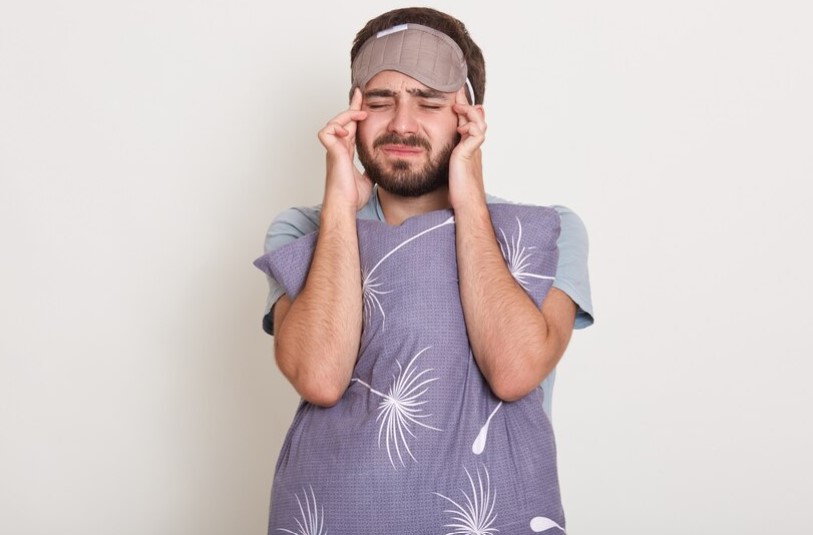How Poor Sleep Can Trigger Migraines?
Migraines are a debilitating condition that can affect your quality of life, leaving you with intense, throbbing pain, nausea, and extreme sensitivity to light and sound. While many factors can trigger migraines, one of the most common but often overlooked triggers is poor sleep. Sleep is essential for your overall health and well-being, and its disruption can significantly impact your nervous system, potentially leading to the onset of a migraine. Understanding the connection between poor sleep and migraines can help you take proactive steps to prevent these painful episodes. In this article, Dr. Kunal Bahrani, one of the best migraine specialists in Faridabad, explains how Poor Sleep can trigger Migraines.
The Connection Between Poor Sleep and Migraines
Research has consistently shown that poor sleep can contribute to migraine development. Sleep disturbances can alter the body’s natural circadian rhythms, which control vital processes such as hormone production, brain function, and the regulation of pain. When sleep is disrupted, these processes are thrown off balance, which can trigger or intensify migraines.
Several sleep-related factors are linked to the onset of migraines:
- Sleep Deprivation: Lack of sufficient sleep is one of the most significant migraine triggers. When you don’t get enough rest, your body’s stress response is activated, leading to an increase in the production of cortisol, a hormone associated with stress. Elevated cortisol levels can lead to inflammation and sensitivity in the brain, which can trigger a migraine. A study published in The Journal of Headache and Pain found that people who experience chronic sleep deprivation are more likely to suffer from migraines.
- Irregular Sleep Patterns: Not maintaining a regular sleep schedule can also increase your risk of developing migraines. If you stay up too late or wake up too early, your body’s internal clock, or circadian rhythm, is disrupted. This irregularity can interfere with your body’s ability to regulate pain, leading to migraines. This phenomenon is especially common in individuals who experience “weekend migraines,” where they sleep in on weekends and disrupt their usual sleep schedule, triggering a migraine attack.
- Sleep Apnea: Sleep apnea is a condition where breathing is interrupted during sleep, leading to periods of low oxygen levels in the blood. This can trigger migraine attacks due to the lack of oxygen and the strain on the cardiovascular system. People with sleep apnea often experience frequent awakenings during the night, leading to fragmented sleep, which can further contribute to the development of migraines.
- Excessive Sleep: While sleep deprivation can lead to migraines, excessive sleep can also have the same effect. Oversleeping on weekends or taking long naps can disrupt your body’s natural rhythm, leading to headaches and migraines. The sudden shift in sleep patterns after extended periods of wakefulness can trigger a migraine episode.
- Poor Sleep Quality: Even if you manage to get an adequate amount of sleep, poor-quality sleep can still contribute to migraine development. Conditions like insomnia or restless leg syndrome can prevent you from entering the deeper stages of sleep that are crucial for restorative rest. Without proper deep sleep, the body’s pain regulation system becomes compromised, increasing the likelihood of migraine attacks.
How Poor Sleep Affects the Brain
During sleep, your brain undergoes essential processes such as detoxification and the regulation of neurotransmitters involved in pain perception. Poor or inadequate sleep can disrupt these processes, leading to heightened sensitivity to pain. The brain may become more responsive to stimuli that normally wouldn’t cause discomfort, including environmental factors like light, sound, and stress. This hypersensitivity can make migraines more likely and more intense.
Additionally, poor sleep affects the autonomic nervous system, which controls involuntary bodily functions like heart rate and blood pressure. Disruptions in sleep can cause the autonomic nervous system to become overactive, which can increase the likelihood of a migraine attack.
Preventing Migraines Through Better Sleep
The good news is that improving your sleep can help prevent migraines and reduce their frequency. Here are some tips to promote better sleep hygiene and minimize your migraine risk:
- Establish a Consistent Sleep Schedule: Going to bed and waking up at the same time every day helps regulate your body’s internal clock and ensures that your sleep quality is optimal. This is especially important for migraine sufferers.
- Create a Restful Sleep Environment: Ensure your bedroom is quiet, dark, and cool. Limit distractions such as electronics and create a calming atmosphere to promote deeper sleep.
- Practice Relaxation Techniques: If you have trouble falling asleep, consider practicing relaxation techniques such as deep breathing, meditation, or yoga to calm your mind before bed.
- Limit Stimulants: Avoid consuming caffeine, nicotine, or heavy meals close to bedtime, as they can interfere with sleep quality and trigger migraines.
- Seek Treatment for Sleep Disorders: If you suspect that you have a sleep disorder like insomnia or sleep apnea, consult with a healthcare professional. Treating these conditions can significantly reduce your risk of migraines.
Consult with Dr. Kunal Bahrani
If you experience migraines triggered by poor sleep or suspect that your sleep patterns are contributing to your headaches, it’s essential to consult with a specialist. Dr. Kunal Bahrani, the best migraine specialist in Faridabad, offers personalized treatment plans to help manage and prevent migraine attacks. He will work with you to identify triggers, improve sleep habits, and provide effective migraine treatments.
Schedule a consultation with Dr. Kunal Bahrani today to discuss how poor sleep may be affecting your migraine condition and to receive expert care tailored to your needs.

